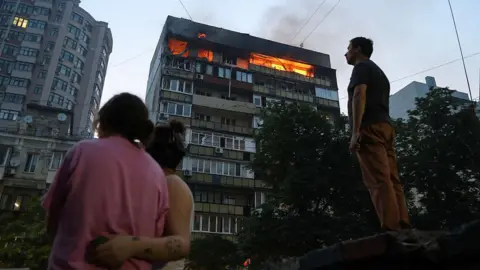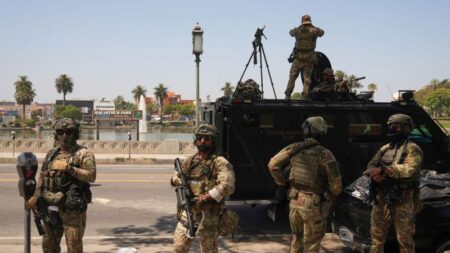In a pivotal announcement, U.S. President Donald Trump has confirmed the impending delivery of advanced air defense systems, specifically Patriot missile systems, for Ukraine. This critical decision comes as the ongoing conflict between Ukraine and Russia persists, with Ukraine facing an increasing threat from Russian drone and missile attacks. Trump’s commitment to sending these crucial weapons is aimed at bolstering Ukraine’s defense capabilities amid a surge in military aggression from Russia. This move aligns with efforts to reorganize the international support provided to Ukraine, particularly through alliances like NATO.
During an interview with NBC News, Trump detailed that the Patriot systems would be sent to NATO, who would then distribute the systems accordingly. He emphasized that NATO itself would cover the costs associated with this military support, a significant assurance given the financial strains of war. The announcement followed a conversation between Trump and Ukraine’s President, Volodymyr Zelensky, wherein Zelensky expressed the urgent necessity for air defense systems, requesting at least ten Patriot systems. This request stems from a recent escalation in attacks on Ukrainian cities, underscoring the dire need for enhanced air defense.
In a follow-up meeting in Rome, Zelensky mentioned that Germany and Norway might finance a portion of these Patriot systems. The ongoing threats have heightened the urgency for such military aid, especially after a recent phone call Trump had with Russian President Vladimir Putin, where he expressed dissatisfaction with the lack of progress towards peace. Trump’s frustration reflects a broader sentiment about the challenges in resolving ongoing conflicts, especially given the increasing threats posed by Russia.
Officials, including U.S. Secretary of State Marco Rubio, have amplified the call for European partners to expedite their provision of existing Patriot missile systems. Rubio’s push for countries like Germany and Spain to assist implies a recognition of the immediate needs in Ukraine, especially as some military shipments from the U.S. got halted last week, raising alarms over the potential depletion of Ukraine’s air defense resources.
As the conflict escalates, the significance of the Patriot systems cannot be overstated. These advanced air defense batteries play a vital role in safeguarding civilian and military infrastructure across Ukraine from Russia’s persistent missile attacks. Utilizing sophisticated radar technology and boasting high interception rates, the Patriot systems help establish a multi-layered defense against aerial threats, which, without, Ukraine would find increasingly difficult to manage.
The costs associated with these systems are substantial — a single Patriot battery, including its missiles, can reach up to approximately $1 billion. This considerable expense underscores why NATO countries have been somewhat hesitant to release their existing systems to Ukraine. Nonetheless, the urgency is palpable, especially following a record number of drone attacks, which reached a staggering 728 in one night. Each new system allows Ukraine to extend its protective reach over urban centers and critical military bases.
Despite these advancements, the conflict remains a complex web of international relations. Trump’s administration seeks to recalibrate U.S. support, which had previously amounted to a staggering $69 billion in military aid to Ukraine from 2022 to 2024. As NATO allies convene to pledge their financial commitments to defense, the expectations for peace negotiations remain high yet complicated, reflecting frustrations from Trump and Rubio over a lack of movement from the Russian side.
In summary, the announcement of Patriot systems being sent to Ukraine signifies a critical juncture in the ongoing conflict, addressing immediate military needs while navigating the intricate dynamics of U.S. foreign policy and global alliances. As Ukraine continues to grapple with intensified Russian aggression, the international community’s response, particularly within NATO, will be pivotal in shaping the conflict’s trajectory.











